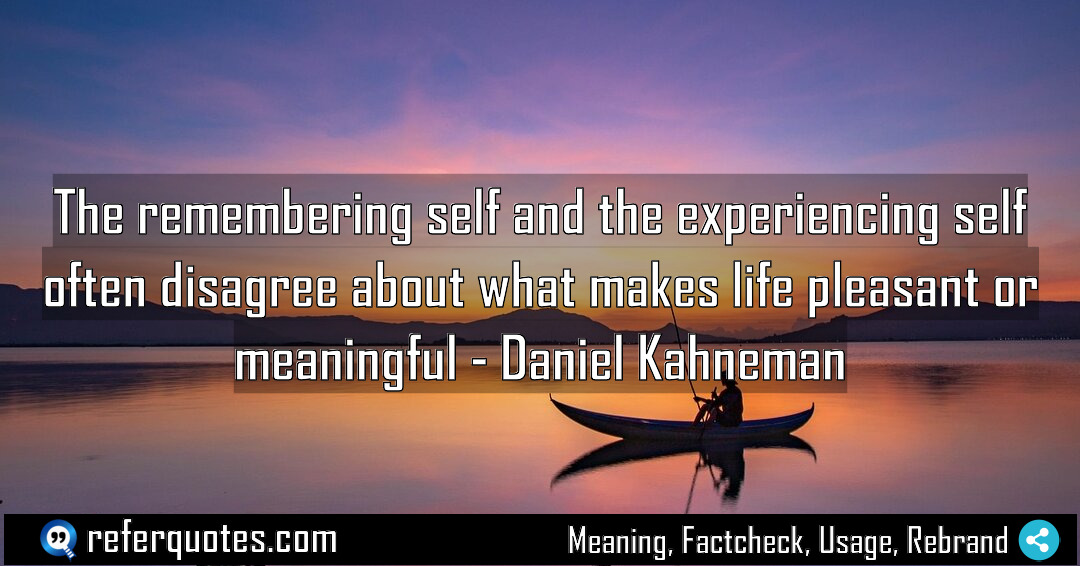You know, “The remembering self and the experiencing self often disagree” is such a powerful insight. It basically explains why we make so many irrational decisions about our own happiness. We’re constantly fighting a battle between two different versions of ourselves.
Share Image Quote:Table of Contents
Meaning
It means the part of you that *lives* an experience and the part of you that *remembers* it later have completely different, and often conflicting, opinions on what was actually enjoyable or meaningful.
Explanation
Let me break it down. Your “experiencing self” is you in the moment. It’s feeling the sun on your skin, the taste of the coffee, the slight frustration of a long line. It lives in real-time. Now, your “remembering self” is the storyteller. It’s the version of you that looks back and creates a narrative. And here’s the kicker—the remembering self doesn’t care about the duration of an experience. It only cares about the peak moment and the end. So you can have a two-week vacation that’s 90% fantastic, but if it ends with a terrible flight delay, your remembering self will categorize the whole trip as “that time we got stuck at the airport.” The experiencing self had 13 great days; the remembering self fixates on the last 6 hours. It’s a fundamental bug in our psychological software.
Quote Summary
| Context | Attributes |
|---|---|
| Original Language | English (3668) |
| Category | Emotion (177) |
| Topics | experience (26), memory (50), self (15) |
| Literary Style | philosophical (434) |
| Emotion / Mood | provocative (175) |
| Overall Quote Score | 83 (302) |
Origin & Factcheck
This concept comes directly from Daniel Kahneman’s 2011 book, Thinking, Fast and Slow. It’s a cornerstone of his Nobel Prize-winning work on behavioral economics. You sometimes see similar ideas floating around, but this specific framing of the two selves is uniquely his.
Attribution Summary
| Context | Attributes |
|---|---|
| Author | Daniel Kahneman (54) |
| Source Type | Book (4032) |
| Source/Book Name | Thinking, Fast and Slow (54) |
| Origin Timeperiod | 21st Century (1892) |
| Original Language | English (3668) |
| Authenticity | Verified (4032) |
Author Bio
Dr Daniel Kahneman transformed how we think about thinking. Trained in Israel and at UC Berkeley, he built a career spanning Hebrew University, UBC, UC Berkeley, and Princeton. His partnership with Amos Tversky produced prospect theory and the heuristics-and-biases program, culminating in the Nobel Prize in Economic Sciences. He engaged broad audiences through bestselling books and practical frameworks for better decisions. He continued writing and advising late into life, leaving ideas that shape economics, policy, medicine, and management. If you want to dive deeper, start with the Dr Daniel Kahneman book list and explore his enduring insights.
| Official Website
Where is this quotation located?
| Quotation | The remembering self and the experiencing self often disagree about what makes life pleasant or meaningful |
| Book Details | Publication Year: 2011; ISBN: 9780374275631; Latest Edition: Farrar, Straus and Giroux, 2013; Number of pages: 499. |
| Where is it? | Part IV: Choices, Chapter 35: Two Selves, Approximate page 382 (2013 edition) |
